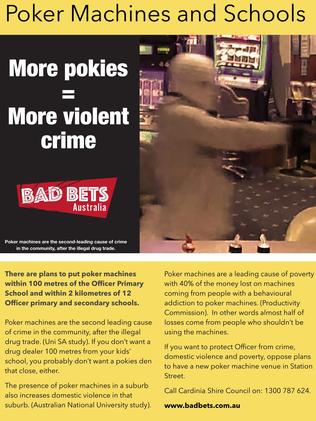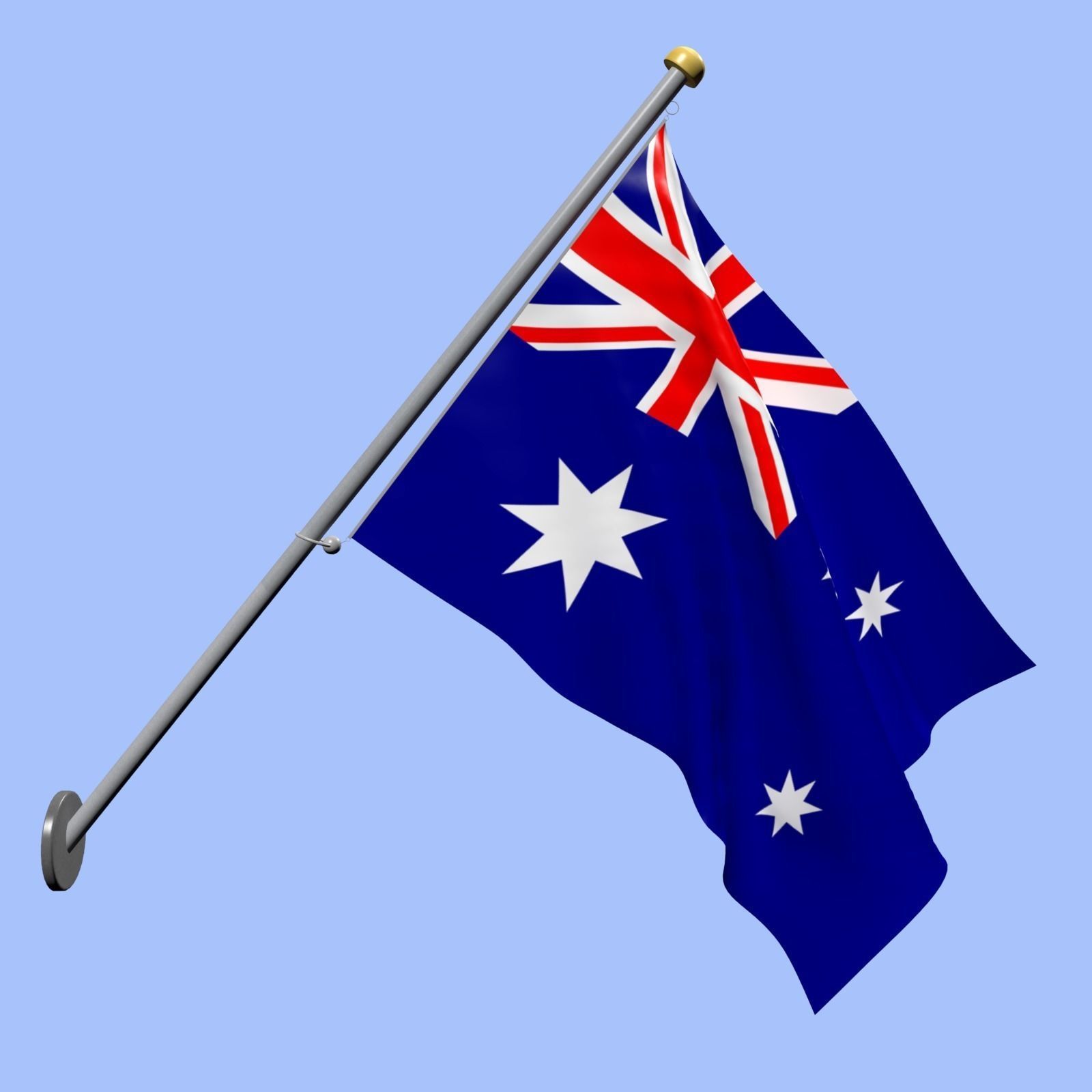Anti Gambling Campaign Australia
It's time to end Australia's gambling addiction! WE'RE IN IT TOGETHER. Whether it's supporting a local community fighting a pokie application, a state-wide campaign to change poker machines laws or demanding national policy reform to curb sports gambling- we're stronger together. Clubs Australia claims the federal government's plan, which includes a requirement for gamblers to carry cards to set gambling limits, is un-Australian and will cost jobs. The group's chief executive, Anthony Ball, says the cards are a licence to punt and won't curb gambling addiction.
Who we are
The Alliance for Gambling Reform is a collaboration of organisations with a shared concern about the deeply harmful and unfair impacts of gambling and its normalisation in Australian culture. We campaign for reforms of the gambling industry that reduce the harm it causes.

We are 100% funded by donations from individuals, foundations and local governments that do not have any ties with the gambling industry. We are not affiliated with any political party.
Read about what we did in 2019 to help drive gambling reform.
Join us
Many organisations share our interest in making our pubs and clubs safe, con-free places. If your organisation would like to join, just tell us a little bit about your organisation and fill out this application form to join our powerful alliance of organisations from around the country.
Alliance leaders that are funding us in 2018-19
Alliance supporters (not necessarily financial)
A Just Cause
African-Australian Multicultural Employment and Youth Services
Anglican Church Southern Queensland
Association of Neighbourhood Houses and Learning Centres (ANHLC)
Australian Drug Foundation
Australian Inter-church Gambling Taskforce
Ballarat Inter-agency Taskforce on Gambling
Banyule City Council
Baptist Union of Victoria
Bass Coast Shire Council
Bendigo Community Health Services
Blow up the Pokies
Borderlands
Brimbank City Council
Cardinia Shire Council
City of Ballarat
City of Glen Eira
City of Greater Dandenong
City of Melbourne
City of Monash
City of Port Phillip
City of Whittlesea
City of Yarra
Common Grace
Communities against Pokies
City of Darebin
Eritrean Jeberty Community in Australia
Financial Counselling Australia
Frankston City Council
Gambling Impact Society NSW
Geelong City Council
GetUp!
Hobsons Bay City Council
Hume City Council
Indigo Shire Council
Jesuit Social Services
Kingston City Council
Knox City Council
Leadwest
Leichhardt Municipal Council
Life in Time
Macedon Ranges Shire Council
Macedonian Community Welfare Association
Manningham City Council
Maribyrnong City Council
Maurice Blackburn Lawyers
Mitchell Shire Council
Moonee Valley City Council
Moreland City Council
Mornington Peninsula Shire Council
Municipal Association of Victoria (MAV)
New South Wales Council of Social Services (NCOSS)
Newtown Neighbourhood Centre
Nillumbik Shire Council
Noosa Council
North East Primary Care Partnership
North Western Melbourne Primary Health Network (PHN)
Public Health Association of Australia
Pokies Anonymous
Reichstein Foundation
Rio Industrial Group
Save Our SBS Inc
Seed
South Australian Council of Social Services (SACOSS)
Team Africa Inc
The Australian Pensioners Voice
The Municipal Association of Victoria
The Salvation Army Australia
The Victoria Local Governance Association (VLGA)
Uniting Church in Australia, NSW & ACT Synod
Uniting Church in Australia, Queensland Synod
Uniting Church in Australia, Victoria & Tas Synod
Uniting Communities, South Australia
UnitingCare Mental Health
Victoria Inter-church Gambling Taskforce
Victorian Arabic Social Services
Victorian Council of Social Service (VCOSS)
Victorian Community Anti-Gambling Advocacy Group
Whitehorse City Council
Whittlesea Interagency Taskforce on Gambling
Women's Health in the North
Wyndham City Council
Gambling advertising has increased rapidly over the past decade.
While smartphones, apps and social media have multiplied the marketing possibilities, a High Court decision in 2008 also played a major part in the dramatic increase in gambling advertising.
The effect of the ruling was to allow bookmakers to offer bets anywhere in Australia. The ruling also made it clear that states and territories were unlikely to be permitted to ban advertising from other parts of the country. The states and territories with bans, including Victoria, amended their legislation to remove them. The High Court case and subsequent ban removal resulted in a significant rise in the number of gambling companies operating across Australia, and a highly competitive market.
According to Nielsen Media Research, the gambling industry spent $273.2 million on advertising in Australia in 2018, up from $89.7 million in 2011. This excludes sponsorships and in-program content, such as during live sport broadcasts.
In September 2017, the Victorian Government announced a ban on betting advertising on roads and public transport, and within 150 metres of public schools. The laws apply to all static advertising, including on billboards and infrastructure like stations and bridges.
Mass media pokies advertising is also banned in Victoria. However, there is rising community concern about the proliferation of sports betting advertising on broadcast and digital media, particularly its effect on young people. Research findings substantiate this concern.
A Foundation-funded study – Extent of, and children and young people’s exposure to, gambling advertising in sport and non-sport TV – found that in 2016, there was an average of 374 gambling ads a day on Australian free-to-air TV. Two-thirds of these occurred between 6 am and 8:29 pm, when large numbers of young people were watching. There were around four times as many gambling ads an hour in sports programming than in non-sports programming.
374
gambling ads a day on Australian free-to-air TV in 2016.
Download image version of the infographic ' 374gambling ads a day on Australian free-to-air TV in 2016.
'x 4
Four times as many gambling ads an hour on free-to-air sports TV than on non-sports TV in 2016.
Download image version of the infographic ' x 4Four times as many gambling ads an hour on free-to-air sports TV than on non-sports TV in 2016.
'In Australia, ads for betting products are not permitted during TV programs classified G or lower from 6 to 8.30 am and 4 to 7 pm, or in programs directed at children between 5 am and 8.30 pm. Until 2018, these restrictions excluded sport broadcasts. On 30 March 2018, bans on gambling ads during broadcasts of live sport were introduced between 5 am and 8.30 pm. See the Australian Communications and Media Authority website for more: New gambling ad rules introduced.
On 28 September 2018, new complementary rules were also implemented to restrict gambling advertising during online streaming of live sport between 5 am and 8.30 pm.
The 2016 Foundation-funded study Child and parent recall of gambling sponsorship in Australian sport collected data from children and parents at community sporting venues in New South Wales and Victoria. Three-quarters of 8- to 16-year-olds interviewed could name at least one gambling brand, and one-quarter could name four or more.
The children interviewed also perceived that some forms of marketing were more influential than others, in particular, advertisements featuring celebrities. Funny videos that are not easily recognisable as advertising can also have a strong impact on children.
Another 2016 study reported that 75 per cent of 8- to 16-year-olds thought gambling was a normal or common part of sport. For more on this study, see ‘It's just everywhere!’ Children and parents discuss the marketing of sports wagering in Australia.
1 in 4

* Based on interviews with 152 children aged 8–16 attending community sporting venues
Download image version of the infographic ' 1 in 4 '31 %
of Victorian secondary school students have gambled.
Download image version of the infographic ' 31 %of Victorian secondary school students have gambled.
'Participants in the 2016 studies were able to describe incentives offered by bookmakers, such as ‘bonus bet’ offers and ‘cash back’ deals, which likely contributed to their belief that you could not lose from gambling. This perception is not limited to young people. Incentives or inducements are a form of marketing used to attract new customers or to trigger further gambling. There is also evidence they can lead to people underestimating the risks they are taking.


A 2018 study funded by the Foundation investigated the effects of wagering marketing on vulnerable adults and found that many vulnerable bettors were heavily exposed to wagering marketing, which led them to place bigger and more frequent bets.
A follow-up study looking at direct texts and emails sent by wagering operators found this direct messaging to be extremely frequent and likely to contribute to risky gambling.
Anti Gambling Campaign Australia Immigration
In 2019, the Foundation released research exploring gambling attitudes, behaviour and exposure among Victorian secondary school students, which found 31 per cent had gambled at some point in their lives, and six per cent had gambled in the previous 30 days. Just under three-quarters of all students had been aware of gambling advertisements or promotions on TV in the past month. This exposure was linked to increased likelihood of gambling.
Our Love the Game Sporting Club Program works with local and elite sporting clubs to reduce young people's exposure to sports betting advertising and counter the social norm of gambling in sport.
Anti Gambling Campaign Australia Since
See some of our sporting hero partners talk about loving the game, not the odds:
Our School Education Program supports secondary school communities to help young people develop informed attitudes to gambling.
Find out more about our work to address the normalisation of gambling at Love the game, not the odds.